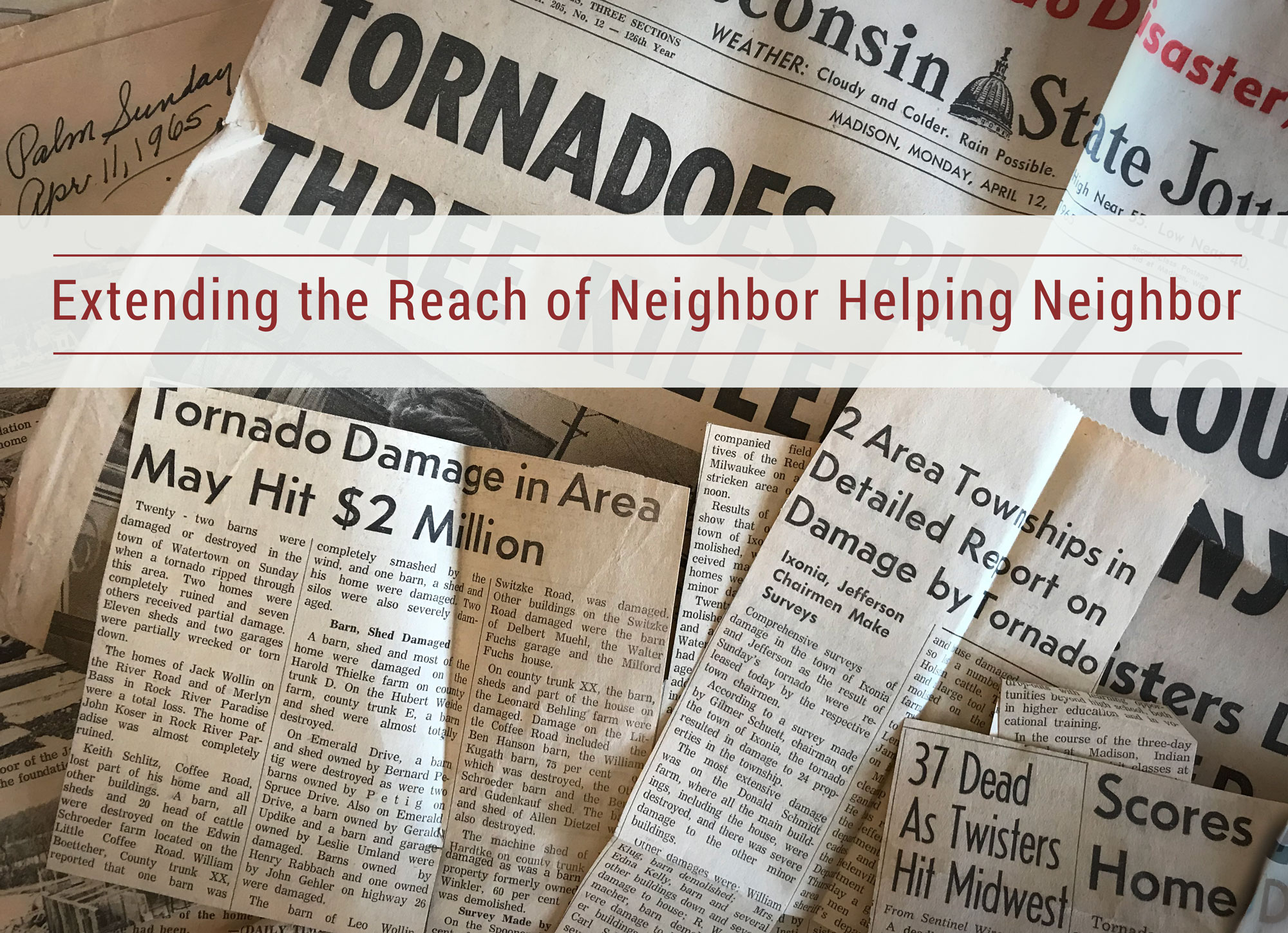
By HOWARD WIEDENHOEFT
In 1937 Wisconsin’s state law authorized mutuals the ability to write supplemental coverages for smoke, theft, and similar disasters, but it wasn’t until 1951 that it authorized extended coverage. Along with extended—also known as wind coverage—came the new requirement of reinsurance, where another insurance company takes on all or part of the risk covered under a policy issued by another insurance company in consideration of a premium payment. In 1951, the state law determined wind coverage had to either be 100% reinsured or the mutual’s wind losses must be capped at $2.50 per thousand of wind insurance in force.
According to their minutes, neither Watertown Mutual Insurance Company or Ixonia Mutual Insurance Company approved the writing of supplemental coverages until 1952. That same year Ixonia Mutual also approved the writing of wind coverage.
Interestingly, even though it was approved, Ixonia Mutual did not offer wind coverage to its policyholders until 1955. Why the wait? At that time the Wisconsin Association of Town Mutual Insurance Companies was working to set up a reinsurance company and it wasn’t until 1955 that it was ready to offer coverage. Ixonia Mutual then purchased wind reinsurance from Wisconsin Town Mutual Reinsurance Company, capping their wind losses at $2.50 per thousand of wind insurance in force.
Watertown Mutual approved writing wind insurance in 1955. They reinsured 100% of their wind coverage with Midland Union Insurance Company of Juneau. Midland Union paid all their wind losses and Watertown received a commission for writing the coverage.
This new way of insuring meant extra bookkeeping for both mutuals. It required two sets of books: one for fire and supplemental coverages and another for wind coverages.
Effective December 31, 1965, Midland Union Insurance Company cancelled their wind reinsurance contract with Watertown Mutual because they could no longer get an adequate rate from Midland’s reinsurers. Watertown Mutual then purchased wind reinsurance from Wisconsin Town Mutual Reinsurance Company, capping their wind losses at $2.50 per thousand of wind insurance in force.
One cannot help but wonder if the 1965 Palm Sunday tornado was the major reason for the cancellation of Watertown Mutual’s wind reinsurance contract? The tornado caused $45,295 of damage to its policyholders which was all paid by Midland Union. Ixonia Mutual paid its policyholders $46,482 for their damages, of which $36,000 was reimbursed to the mutual by their reinsurance company.
Both Watertown Mutual and Ixonia Mutual added their first deductible to their policies of $50 after this tornado.
Nowadays, Forward Mutual offers insurance with the reinsurance backing of Grinnell RE. With Grinnell’s A.M. Best rating of A, our mutual feels confident in offering the best coverage available to our policyholders.
Read more!
Comparing the Capitalizing of Two Early Mutuals
Supporting Dairy in the Late 1800s
1879 Early Challenges for a Young Mutual
Ixonia Mutual’s First $1000 Loss
1885 A Year of Neighbor Helping Neighbor
Taxes, War and the English Language
Supporting the Community’s Fire Protection
Board Directors and Their Meetings
Standardization of Wisconsin Mutuals
Of Electricity, Radio and Foxes
Our Annual Meetings Over the Years
How a Major Disaster Affected Extended Coverage and Reinsurance
Surviving the Big Dogs in the 1960s
Introducing Agents to the Mutuals
Establishing Confidence in Financial Strength
The 1990s, Advancement and Angst
Ixonia Mutual and Watertown Mutual Merge and a New Company is Formed